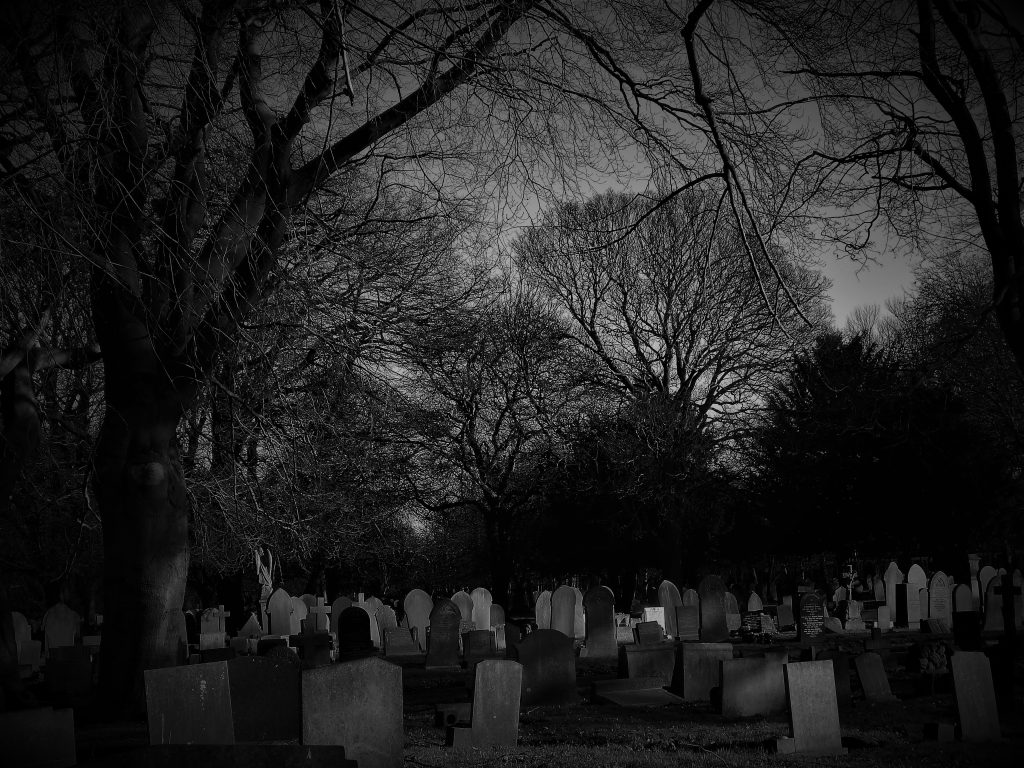By: Lauren Shovlin, Staff Writer

A mourning daughter visits her deceased mother’s grave only to arrive to find a stranger buried in her mother’s plot. Must the body be removed, and does the decedent’s family have any claim to prevent it?
When a decedent is buried in the wrong plot, both the plot owner and the decedent’s family suffer injuries: the family must accept that their loved one rests in a place not chosen for them, while the plot owner loses her burial place.1 This pits the family’s interest in repose against the lot owner’s right to the plot and the cemetery’s statutory duty to reinter the body into the correct plot.
The Pennsylvania Supreme Court has long recognized that the law reflects a broader, “universal sentiment” against disturbance of the dead.2 From 8th century Christian tombstones—which first bore the epitaph, ‘requiescat in pace,’ or rest in peace3—to the hex on Shakespeare’s tombstone at Stratford—“curst be he that moves my bones”—post-mortem repose is an enduring human value that is reflective of more than just the law.4
This enduring disdain for disinterment informs Pennsylvania courts’ “general presumption that a decedent would not want his remains disturbed.”5 To overcome the courts’ aversion to disinterment, a party seeking reinterment must show good cause and be sufficiently related to the decedent to have standing to bring the reinterment suit.6
When the cemetery is at fault, its statutory duty to rectify the error negates the need for this test. However, when a dispute for disinterment does not trigger a statutory duty—often some form of familial dispute over where the body should lie—courts measure good cause through a multi-factor test that considers the parties’ relationships to the decedent, the decedent’s wishes, the conduct of each party, the time since burial, and the strength of reasons for or against disinterment.7 Administration and disposition of the decedent is the “paramount” right of the surviving spouse, and Pennsylvania courts are hard-pressed to disregard a widow’s wishes, even against immediate kin, and in some instances, even against the decedent’s own wishes.8
Applying these rules to the mistaken burial hypothetical, a body mistakenly buried in the wrong plot would trigger the cemetery’s statutory duty to disinter and reinter the body into the correct plot to fix their grave mistake.9 Since a burial plot is a limited property right, conveying a right to burial but not legal title to the land, which remains with the cemetery,10 the plot owner could assert her quasi-property right to exclusive burial in that plot.
On the other hand, a decedent’s family might have a claim in protecting repose through a limited property right in their decedent’s interment. While it is widely espoused that there is no property right in a corpse, the Pennsylvania Supreme Court has made it clear that this principle is not absolute.11
In its seminal reinterment case, the Court recognized a quasi-property right in a corpse arising out of the next of kin’s legal duty to bury the decedent, which affords them a corresponding right of control and disposition of the body—a right of possession in substance if not words.12
Likewise, the Pennsylvania Superior Court recognized a parents’ property right in their son’s dead body after the decedent was mistakenly cremated before an autopsy could occur.13 The court rejected the coroner’s claim for immunity, reasoning that if he had custody of the remains when the mistake occurred the statutory exception for property under governmental control could apply, concluding: “there can be no doubt that the next of kin have a property right in the remains of their son.”14
Returning to the hypothetical before us, perhaps the family of the decedent could oppose reinterment under this quasi-property right in Pennsylvania. However, this limited property right will lose against the plot owner’s right to an exclusive burial in that plot and the cemetery company’s statutory duty to reinter the body.
All in all, Pennsylvania’s laws surrounding reinterment prompts food for thought: should the cold hand of the black letter law have the power to prevail over a family’s moral claim to leave their decedent undisturbed?
- The Consequences Of Improper Burial: Legal and Moral Considerations. (“Improper burial can have a profound emotional impact on the deceased person’s family and friends. It can disrupt the grieving process, hinder closure, and cause additional emotional pain and distress. The moral consequences involve causing unnecessary suffering and compounding the grief experienced by the bereaved.”) ↩︎
- Pettigrew v. Pettigrew, 207 Pa. 313, 56 A. 878 (1904) ↩︎
- https://catholic-cemeteries.org/rest-in-peace/ ↩︎
- Id. ↩︎
- Novelli v. Carroll, 278 Pa. Super. 141, 420 A.2d 469 (1980) ↩︎
- Id. ↩︎
- Id. ↩︎
- Pettigrew v. Pettigrew, 207 Pa. 313, 56 A. 878 (1904) ↩︎
- https://www.palegis.us/statutes/consolidated/view-statute?txtType=HTM&ttl=09 ↩︎
- https://www.palegis.us/statutes/consolidated/view-statute?txtType=HTM&ttl=09 ↩︎
- Pettigrew v. Pettigrew, 207 Pa. 313, 56 A. 878 (1904) ↩︎
- Id. ↩︎
- Novelli v. Carroll, 278 Pa. Super. 141, 420 A.2d 469 (1980) ↩︎
- Geiges v. Rosko, 49 Pa. D. & C.3d 61 (C.P. 1987) ↩︎